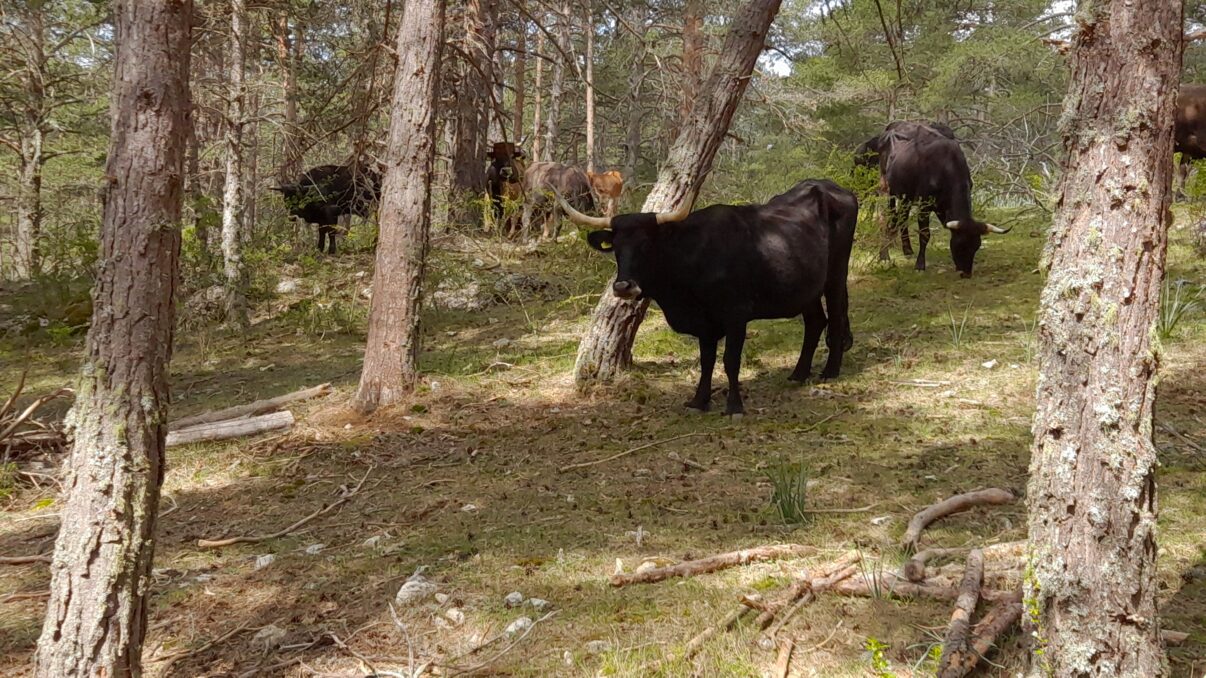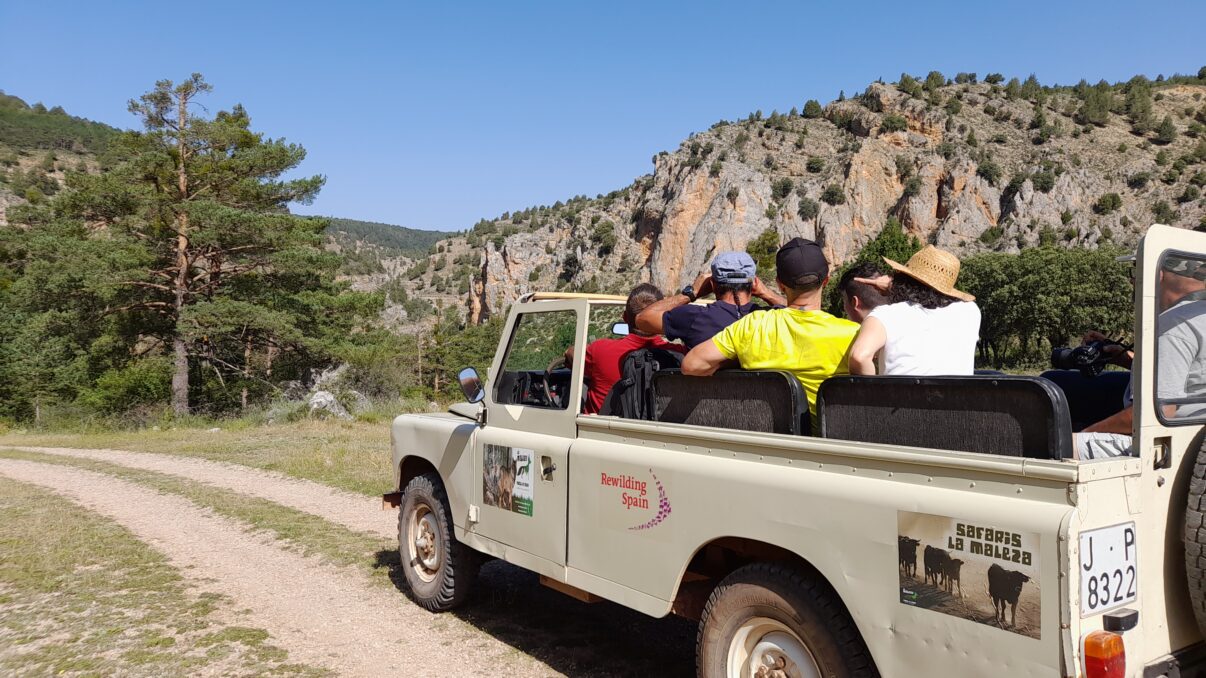La Maleza Wildlife Park, located in Tramacastilla (Teruel), has become the first Spanish nature-based company to receive financial support from the Rewilding Europe Capital (REC) fund.
The loan allowed this small business extend their portfolio with the ‘Safari Rewilding La Maleza’, a new guided tour through the Sierra de Albarracín that will take visitors to watch the herd of tauros that is living in this area two years ago as part of the Iberian Highlands rewilding initiative.
The tauro is a kind of bovine that looks and behaves like the aurochs, the extinct wild cows that inhabited the Iberian Peninsula and the rest of Europe for thousands of years, and from which all current domestic cows are descended. Tauro’s features have made it easier for them to adapt quickly to the area and live self-sufficiently.
The 29-specimens herd that can now be visited moves semi-freely through a 500-hectare enclosed area located in public mountains in the municipalities of Frías de Albarracín and Calomarde.
The new observation guided tour created by La Maleza Wildlife Park is an exceptional opportunity to get to know these impressive animals -the first tauros to arrive in Spain-, of which there are only 500 specimens in the whole world. Tauros can weigh up to 1,000 kilos, they are tame and elusive animals. As well, they are adapted to live independently in the wild, even in extreme conditions, both in terms of temperature and food availability.

During the new guided tour, which takes place in an off-road vehicle and lasts two and a half hours, participants enjoy the Sierra de Albarracín beautiful landscapes and get valuable information about the unique behaviour of these bovids. Visitors also get to know about the relevant ecological role tauros are playing in the Iberian Highlands. In addition, the trip is an extraordinary opportunity to meet other wild species living in the area, such as griffon vultures, Egyptian vultures, fallow deers and red deers.
Tauros complement the role of extensive livestock farming, which is in decline in the area, and cover an important ecological niche. Large herbivores natural grazing is essential in many ways. Through grazing and trampling, they open up and introduce more light to the woodland, which helps other species of animals and plants to grow. Even the droppings attract many insects and it is useful for plants. By eating small bushes, they also help reduce the risk of wildfires
In addition to the tauros experience, the Safari Rewilding La Maleza also provides a close-up view of a herd of seven Pottoka semiwild horses recently released in the same area. Pottoka is a horse breed originating from the Basque Country that has maintained a high genetic purity as a mountain horse. Like tauros, horses play a very important role as large herbivores in maintaining the ecological functions of natural spaces.

Job creation
Rewilding Europe Capital is an investment tool created by Rewilding Europe with the goal to scale up rewilding impact, develop a nature-based economies and pilot new business models around rewilding landscapes such as Iberian Highlands. This way, it is expected to demonstrate that ecosystems restoration in rural regions can be a viable way for economic development, able to generate new business opportunities, jobs and income for local communities.
In Spain, Rewilding Spain assists interested companies with the necessary steps to apply for these loans, which can be up to €50,000€.
La Maleza Wildlife Park, got a €13,000 loan, which has enabled the company to expand its range of services with this new guided tour. The money has made it possible to purchase the vehicle used to carry out the visits, signposting the route and hire two nature guides. The new experience will be available everyday throughout the month of August and at weekends throughout the year, except for the wintertime.

“By setting up this route, we have fulfilled a dream, both for our company and for the Sierra de Albarracín. The fact that the tauros are here is very important for ecotourism in this area, because until now these places have been the least known in Aragon region, despite the fact there are great natural values here. We hope that initiatives like this will change that situation”, says Ricardo Almazán, general manager of La Maleza Wildlife Park, who also highlights the relevant ecological role of tauros in this landscape.

Regarding the applying experience for the Rewilding Europe Capital funds, Ricardo Almazán describes it as “extraordinarily easy” and hopes that it will serve “as an inspiration for other companies and businesses in the area”.
Rewilding Spain’s Enterprise Officer, Basilio Rodríguez, also highlights the value of this funding programme as “one of the best examples we can provide of how rewilding, as well as aiming to recover a wilder nature, also provides new opportunities for the people living in the landscape”.
